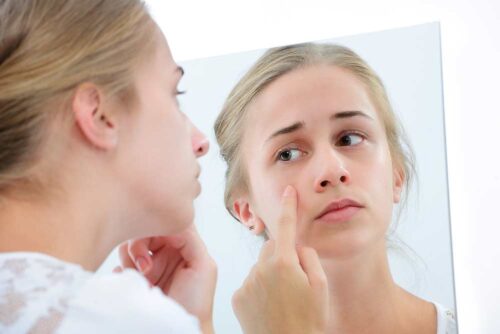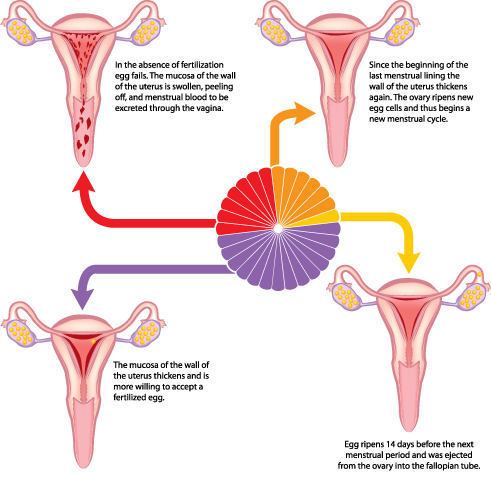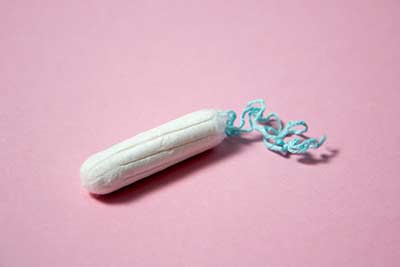Puberty
 Puberty is when the body starts to change and become more like an adult. These changes may begin to occur as early as eight years old or as late as 15 years old.
Puberty is when the body starts to change and become more like an adult. These changes may begin to occur as early as eight years old or as late as 15 years old.
During puberty, the brain begins send signals to parts of the body instructing it to change and grow. Hormones, which are chemicals in the body that control the bodily functions, are responsible for the changes.
Hormones can cause many changes such as growth, weight gain, and hips that may widen. Skin changes like acne or pimples are very common during puberty and body odor becomes different. Hair under the arms and around the vulva will also begin to grow which is commonly referred to as pubic hair.
During puberty, breasts begin to grow and as they change they may be tender and look swollen. The areolas of the breasts will become darker around the nipples and the breast itself will grow fuller and rounder. It is common that one breast will appear larger than the other.
MENSTRUAL CYCLE
Girls will typically begin their menstrual cycle and have their first period between the ages of 12 and 14 years of age, however some girls may begin earlier or later. Menstruation is the body’s way of preparing for a possible pregnancy.
 Hormones signal the ovaries to release an egg each month. When the egg is released it will travel into one, not both of the fallopian tubes and make its way to the uterus. While this is happening, the lining of the uterus begins to grow and thicken in preparation for a fertilized egg. The egg cannot become fertilized without a man’s sperm.
Hormones signal the ovaries to release an egg each month. When the egg is released it will travel into one, not both of the fallopian tubes and make its way to the uterus. While this is happening, the lining of the uterus begins to grow and thicken in preparation for a fertilized egg. The egg cannot become fertilized without a man’s sperm.
If the egg does not become fertilized, the lining of the uterus breaks down and flows out the body through the vagina. This is the cycle a woman’s body will go through every 21 to 45 days if pregnancy does not occur.
When periods first begin they may not be regular. A period may be missed or there may be more than one in a month. However, if sexual intercourse happens and a period is missed, pregnancy may have occurred. Regular cycles may take up to 6 years to stabilize.
Women may experience cramps in the lower abdomen, get headaches, feel dizzy or have some diarrhea during or before the period begins. To help with the cramps, heat may be applied to the abdomen or back. If there are no aspirin allergies or severe asthma condition, ibuprofen or naproxen sodium may be taken. Exercise has also proven helpful for some women to relieve discomfort.
TAMPONS & PADS
 It is a good idea for girls to be prepared for their period whether or not it has started. Teenagers are encouraged to have tampons or pads ready at home and to have some on hand in a locker or back pack at school. In anticipation of their first period, girls will want to decide if they want to use tampons, pads or both.
It is a good idea for girls to be prepared for their period whether or not it has started. Teenagers are encouraged to have tampons or pads ready at home and to have some on hand in a locker or back pack at school. In anticipation of their first period, girls will want to decide if they want to use tampons, pads or both.
Tampons come in different sizes but the smaller sizes should be used until the comfort level and menstrual blood flow is known. Tampons are inserted into the vagina and catch the blood before it leaves the body.
Pads come in different sizes and thickness based on a personal comfort choice for the individual. Pads attach to the inside of underwear and absorb the blood after it leaves the vagina.
Tampons and pads should be changed every 4 to 8 hours depending on individual menstrual blood flow. Teenagers should remember to shower to help prevent odor and make sure to wash their hands after changing a tampon or pad. Feminine products should be disposed of in the garbage and not the toilet.
TRACKING
It is important for girls to track their period on a calendar marking the first day of bleeding with a “P.” Write a “P” on each of the following days while bleeding continues. Count the first “P” as day 1 and then continue until the stops. There are applications available on smart phones to help keep track periods and assist in the calculation of future periods.
Please contact a Rosemark provider if any of the following situations exist:
- If you are 15 years of age or older and have not had a period
- If your period comes more frequent than 21 days or longer than 45 days
- If your periods last more than 7 days
- If your periods are so heavy that you have to change your pad or tampon every 1-2 hours.
- If you experience painful cramps that keep you from doing your regular activities and if ibuprofen, naproxen or heat does not help.
Rosemark has 13 healthcare providers including male and female gynecologists, physician’s assistants, certified nurse-midwives, and certified nurse-practicioner. All of our providers are experienced with teenagers and their unique healthcare needs as they progress through puberty.
